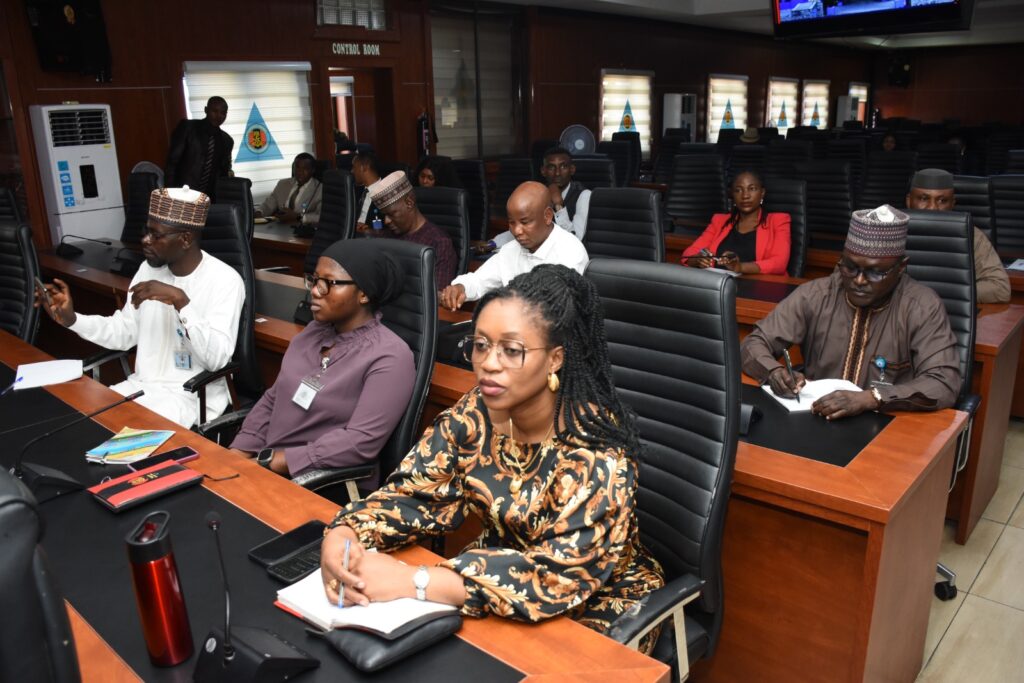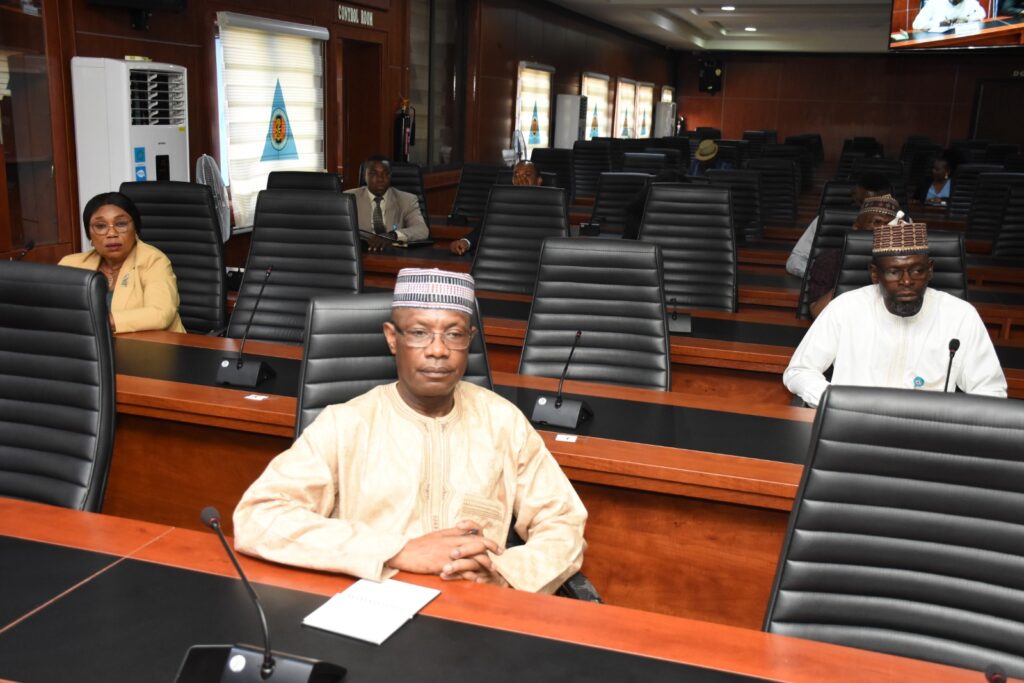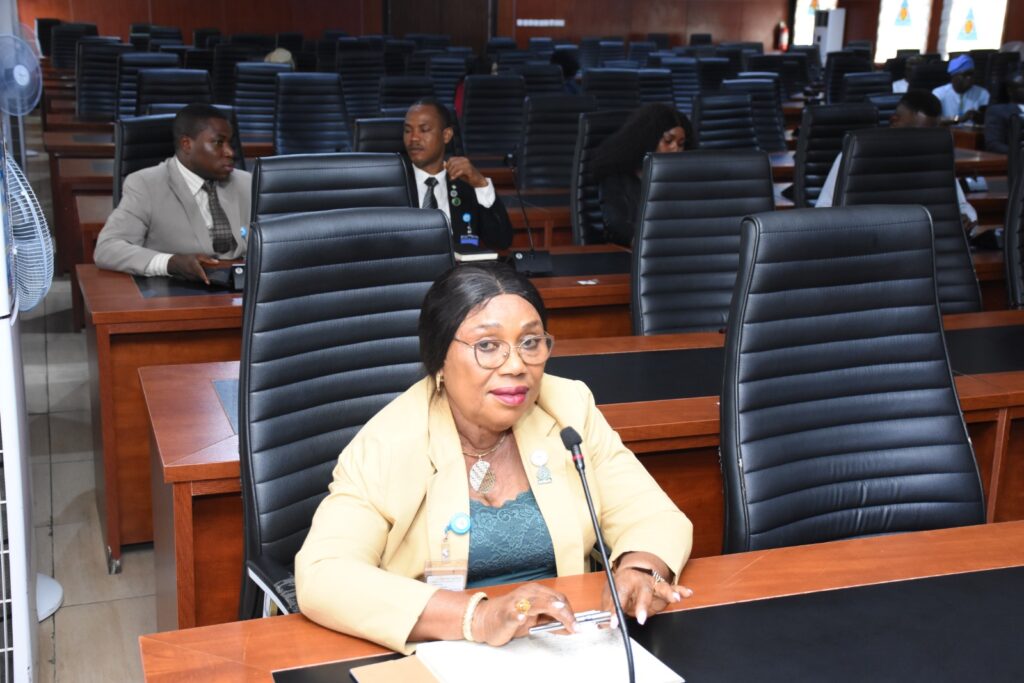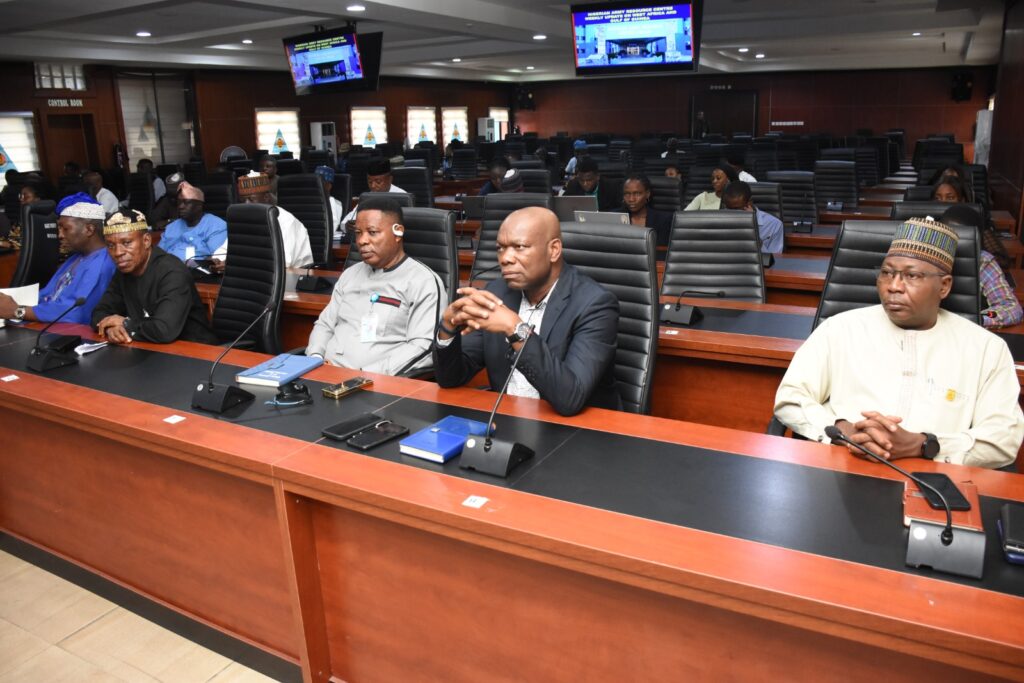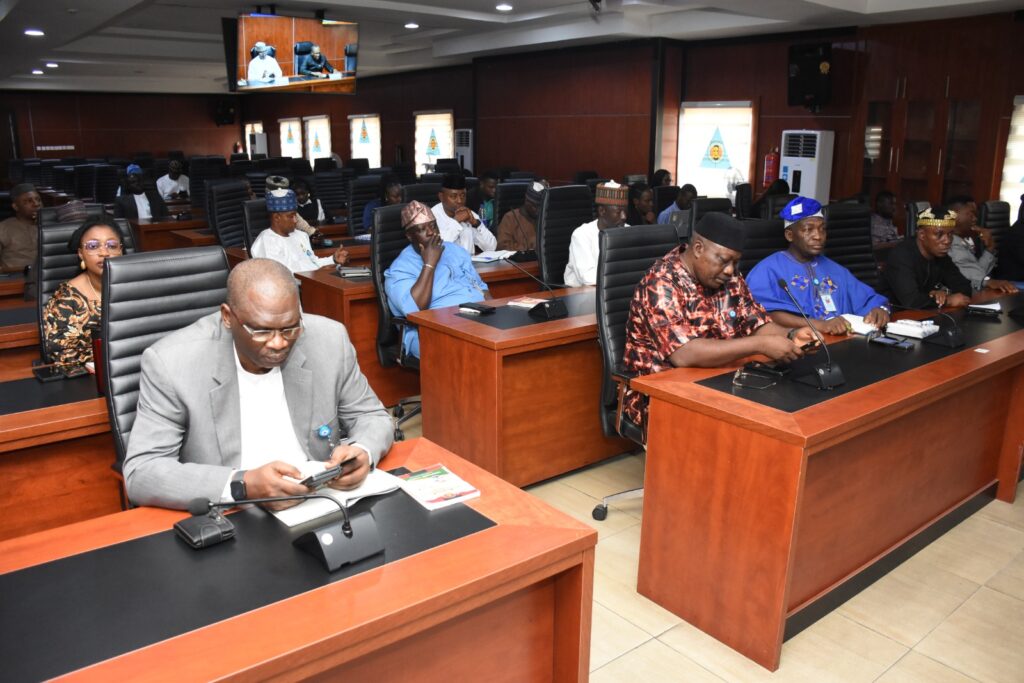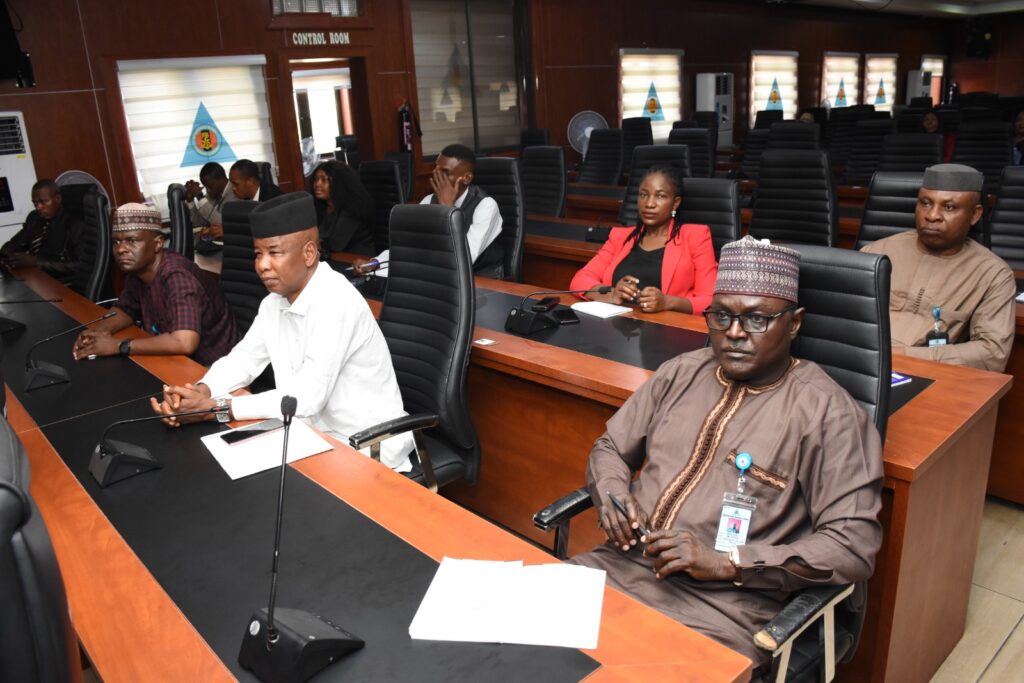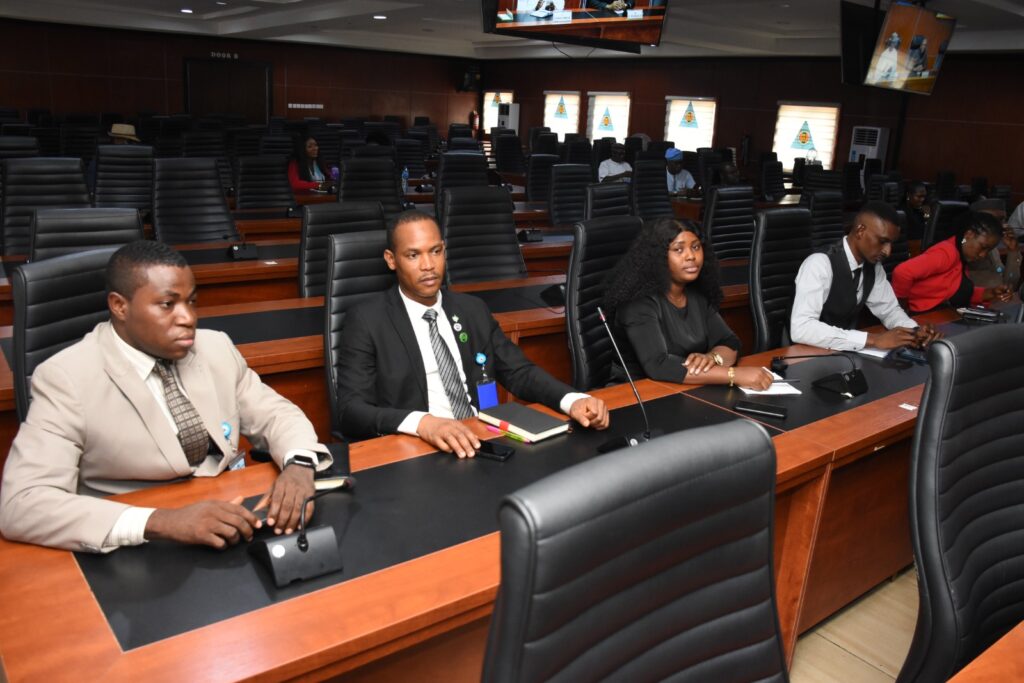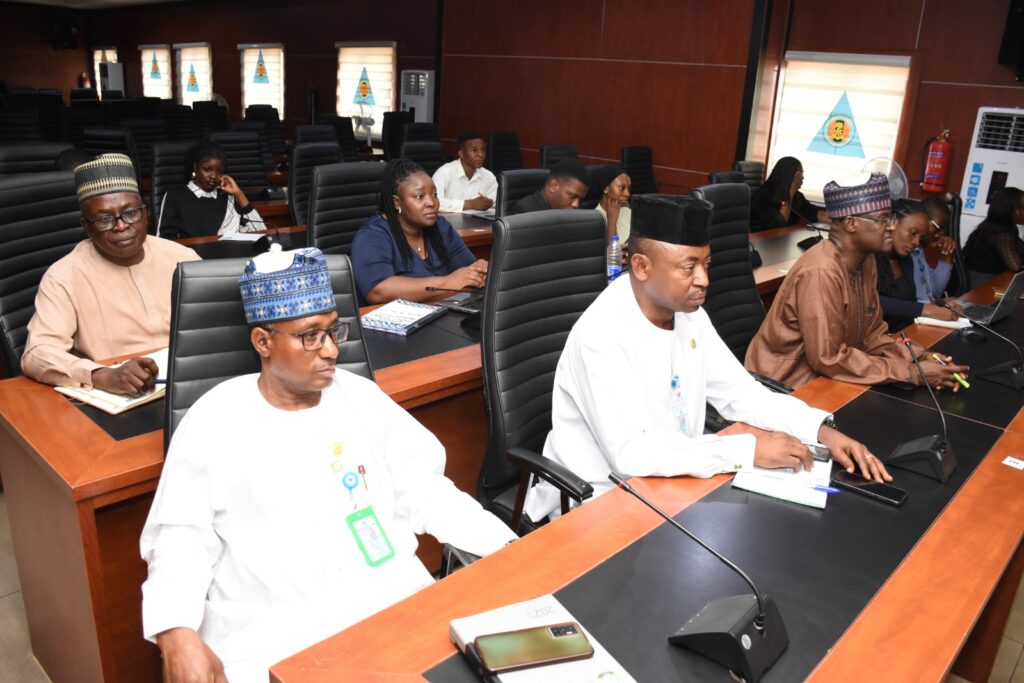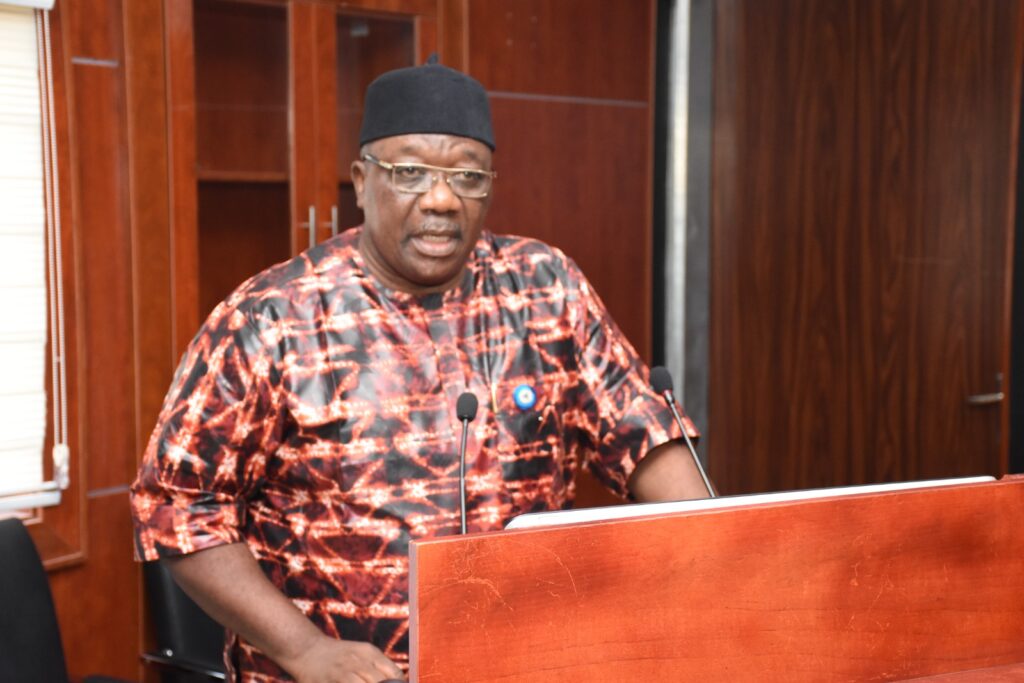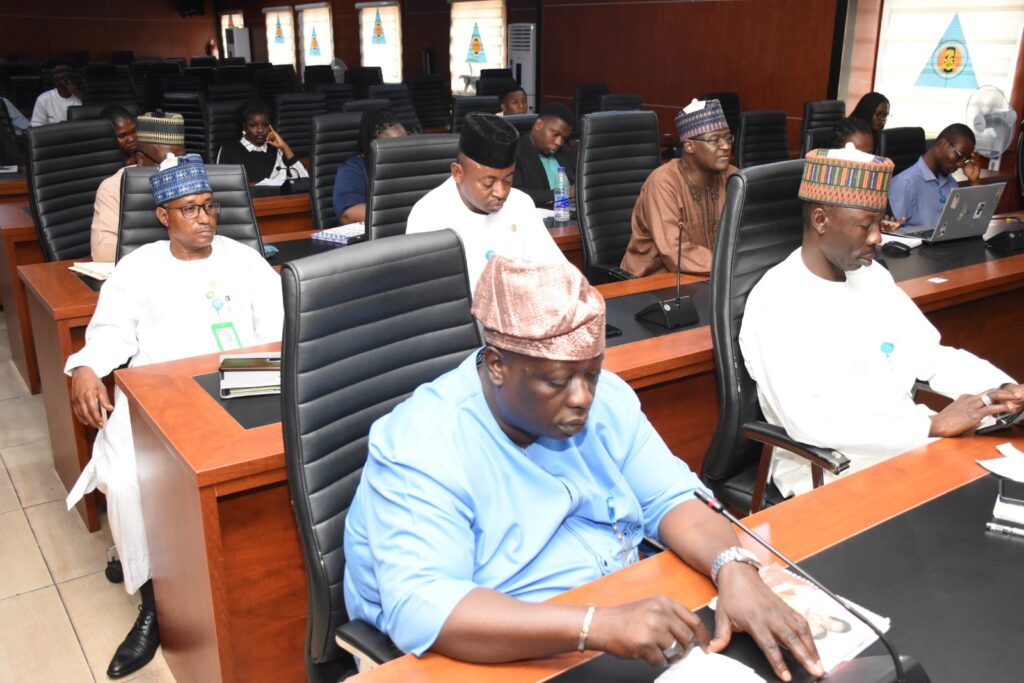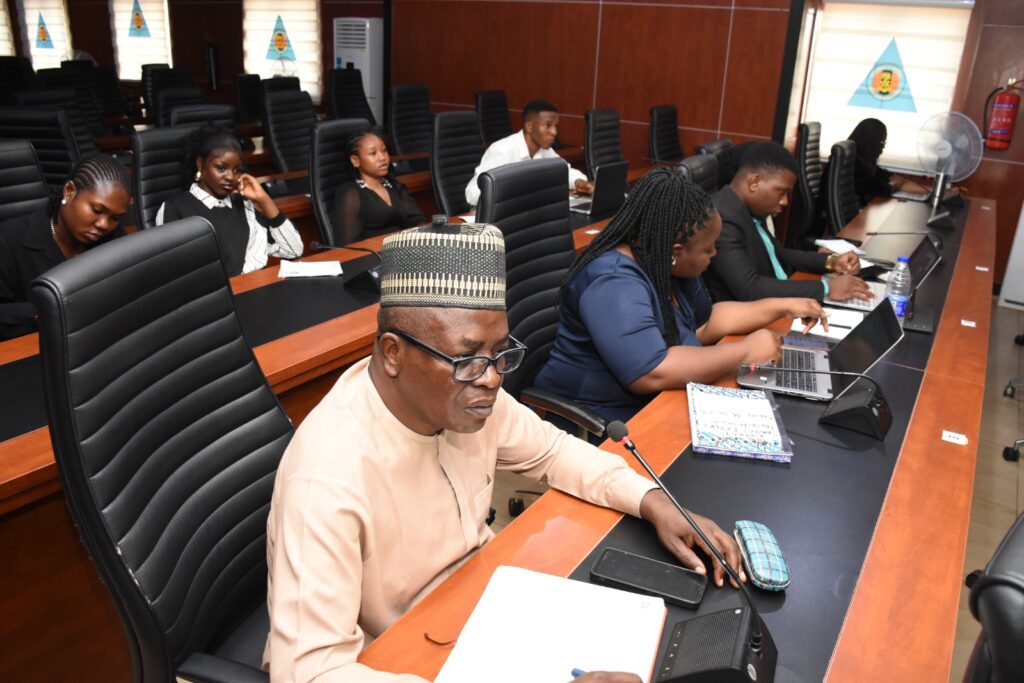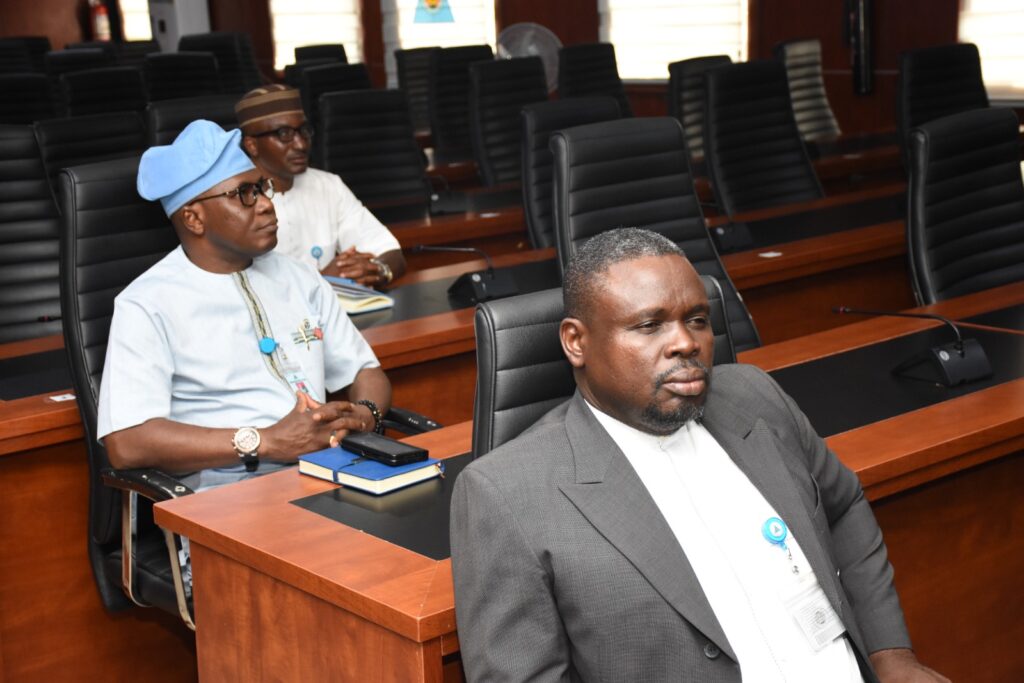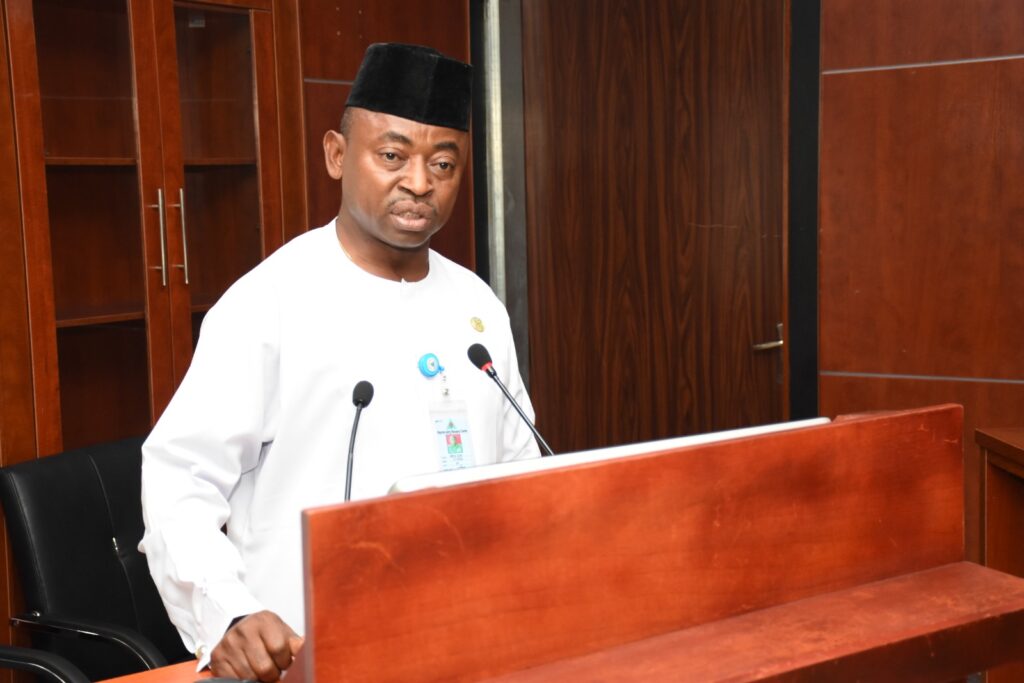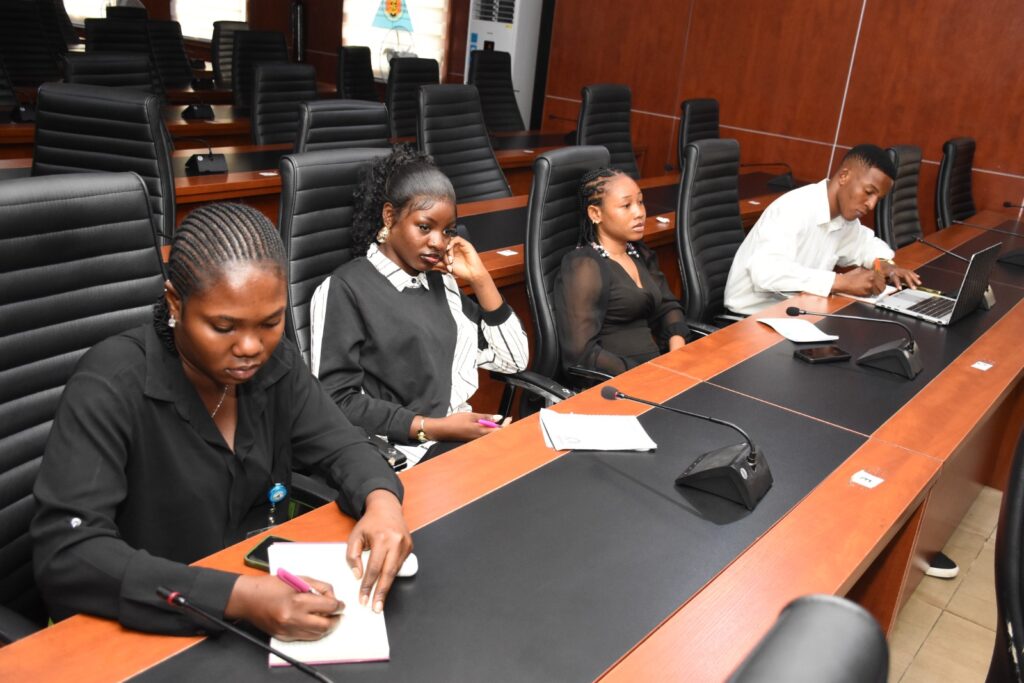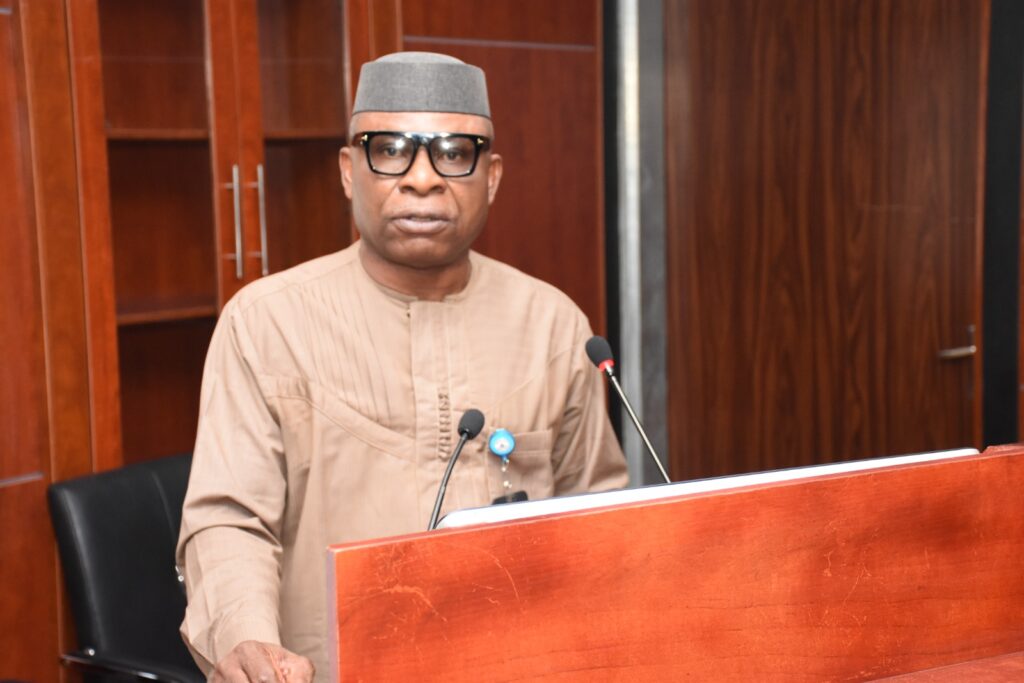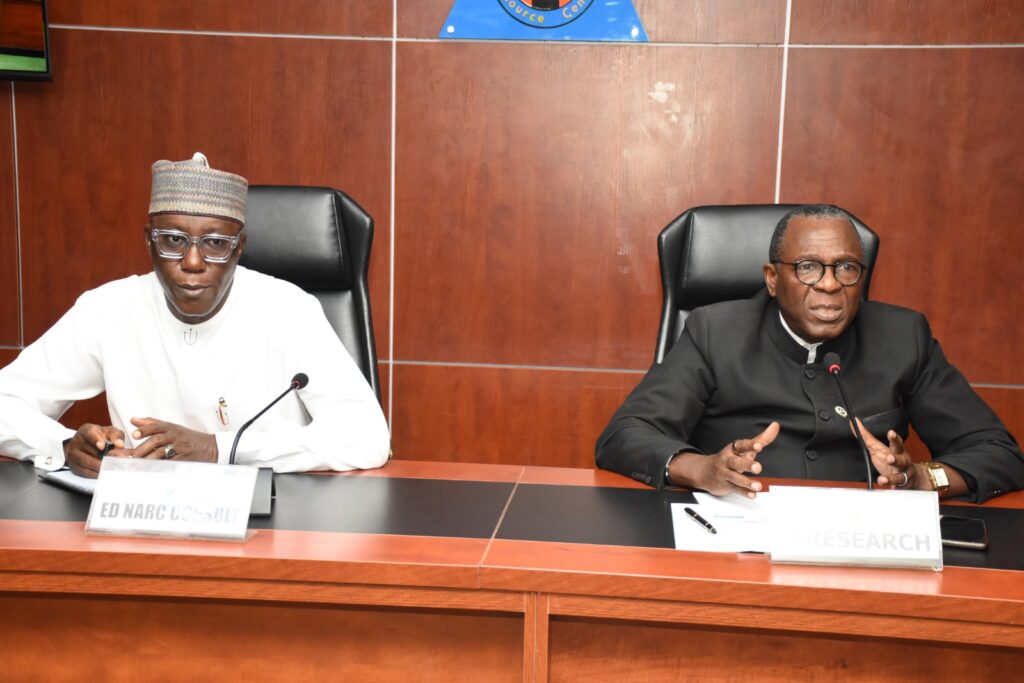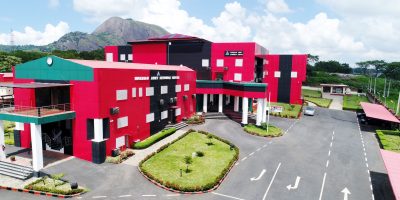Nigerian Army Resource Centre (NARC) Weekly Subject Experts’ Presentation was held at Hall C, TY Buratai Block, Abuja. There were four presentations made by the Subject Experts on West Africa, Gulf of Guinea, Central America, Nigeria and Indian Sub-Continent respectively.
The first presentation by Maj Gen OO Adeleke (Rtd) subject expert on West Africa and Gulf of Guinea, discussed on how Female Genital Mutilation (FGM) in the Gambia: Lawmaker Tables Bill in Parliament to Lift Ban. The British Broadcasting Corporation (BBC) reported on 5 Mar 2024 that a bill aimed at lifting the ban on FGM has been tabled in the Gambia’s parliament by an independent lawmaker. It was outlawed in the mainly Muslim nation in 2015 when Yahya Jammeh was president, but influential Muslim clerics have been pushing for the ban to be repealed, while women’s rights activists have vowed to campaign for it to remain in place.
In his analysis and lessons for Nigeria, Gen OO Adeleke (Rtd) pointed out that, the Federal Government of Nigeria recognized FGM as a discriminatory practice requiring policy and legal interventions since 2002, when it developed the first National FGM Policy. However, the FGN needs to ensure the laws are passed in each of the 36 states, as not all have yet introduced legislation criminalizing FGM. Also, implementation of the law varies across the country and depends on state and federal police capacity, willingness and understanding of anti FGM legislation. Hence the Federal Min of Health must work with the Inspector General of Police to ensure widespread dissemination and understanding of the laws against FGM.
He recommended that the Federal Ministry of Information and National Orientation should reinvigorate its campaign to create awareness for the public on the dangers of FGM and also the Federal Ministry of Health should work with the Nigerian Supreme Council for Islamic Affairs and the Christian Association of Nigeria (CAN) to encourage religious clerics to assist in the awareness campaign to curb all activities leading to FGM.
The second presentation by Brig Gen ED Idimah Subject Experts on Central America, centered his presentation on how Ortega is Offering Nicaragua to Putin on a Silver Platter. The exiled dissident of Nicaragua, Dora Maria Tellez, on Sunday 3 March 2024, accused the Nicaraguan government of Daniel Ortega and Rosario Murillo of planning to turn Nicaragua into a regional platform for Russian security and geopolitics. She claimed that Ortega and Murillo were offering up the country to Russia, jeopardizing Nicaragua’s sovereignty and violating human rights.
In his analysis and lesson for Nigeria, Brig Gen Idimah noted that, the close ties between Nicaragua and Russia, as highlighted by Dora Maria Tellez, offer important lessons for Nigeria to consider. These lessons include the evaluation of the balance between stability and democratic values, the exploration of economic cooperation and diversification, the importance of strategic alliances, the safeguarding of national sovereignty, and the adoption of a pragmatic and balanced approach to international relations. Nigeria should carefully assess the implications for national security when developing close relationships with powerful external partners.
He recommended that Federal Government of Nigeria should critically evaluate the balance between stability and the preservation of democratic values by ensuring that stability is not prioritized at the expense of human rights and democratic principles and also Nigeria should explore ways to strengthen economic ties with strategic partners, diversify its economy, and leverage its natural resources for sustainable development.
The third presentation by Brig Gen CC Ogbu Subject Expert on Nigeria, focused on the Looting of Federal Government Warehouse as a Result of Food Scarcity. On Sunday, 3 March 2024, Television Continental (TVC) and Channels Television reported that some residents of the Nigerian capital, Abuja, broke into a warehouse in the city to loot food items. The warehouse, located at Gwagwa Tasha area belongs to the Federal Capital Territory (FCT) Department of Agriculture. The hoodlums carted away foodstuffs and other items stored in the warehouse. The Public Relations Officer of the FCT Agric secretariat, Zakari Aliyu, confirmed the incident in a text message to Channels Television.
In his analysis and lessons for Nigeria, Brig Gen Ogbu stressed that, it is obvious that there is an emerging food crisis in the country. The Federal Government has acknowledged the hardship Nigerians are facing and has introduced several palliative measures and other actions to arrest the situation. These include immediate arrest and prosecution of those hoarding foodstuff, ban on importation of food items amongst others. Despite these efforts, more aggressive nationwide actions involving farmers, Agricultural ministries, states and security agencies are required to ease the burden of the citizens regarding the food crisis.
He recommended that Federal Government of Nigeria and states should design more agricultural support schemes towards increasing incentives to farmers and boosting food production and also NARC should advise the FGN to task the Nigeria Police with other paramilitary agencies and state vigilante services to provide adequate security for farms and food warehouses.
Similarly, the fourth presenter Brig Gen WD Nasiru Subject Expert on Indian Sub-Continent, discussed on how Heavy Rain, Thunderstorms likely to hit Karachi and many cities in Pakistan from 29 Feb – 3 March 24. In its weather forecast, the Met Office said that most parts of the country are expected to receive torrential rainfall from Thursday, which is likely to continue till March. The Met Office warned that the heavy rainfall may cause flash flooding in many areas on 29 February and 1 March.
In his analysis and lessons for Nigeria, Brig Gen Nasiru pointed out that, to tackle the menace of flooding in Nigeria, a multi-faceted approach encompassing robust infrastructure development, effective urban planning, community engagement, and sustainable environmental management practices is required, by investing in flood-resistant infrastructure, implementing zoning regulations, promoting green infrastructure, and enhancing early warning systems, Nigeria can mitigate the devastating impact of floods, protect vulnerable communities, and build resilience against future disasters.
He recommended that Federal Government of Nigeria should intensify its efforts to implement and enhance early warning system to alert communities about the impending flood, allowing for timely evacuation and preparation, and also incorporate the climate change adaptation strategies to flood management plans, considering future changes in precipitation patterns and sea level.
